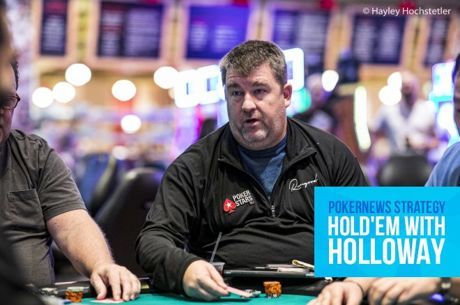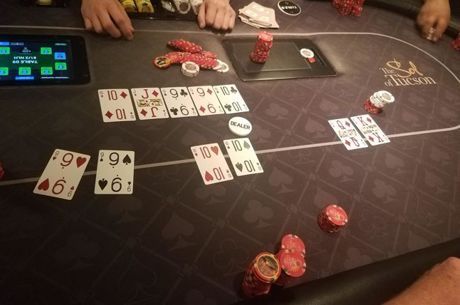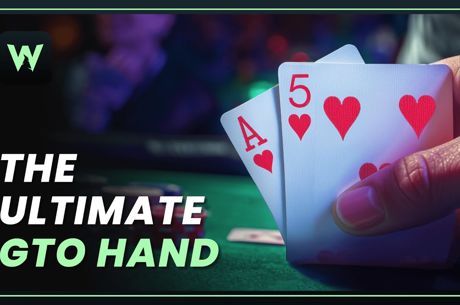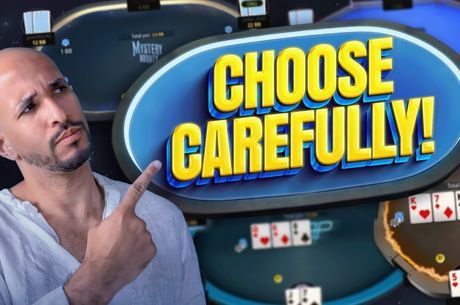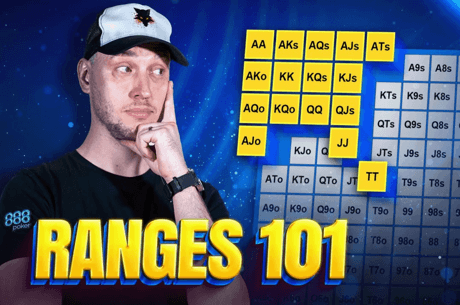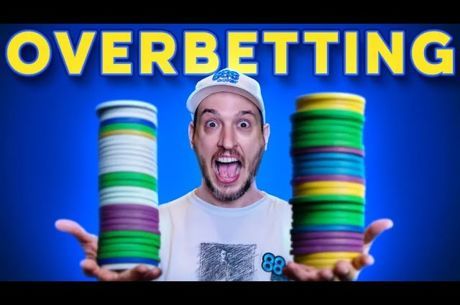The View From Both Sides of Pocket Aces

I have a hand to share, and a poker lesson to go along with it. It was at that Choctaw casino in Oklahoma I was telling you about a few days ago. Pocola, if you're in the neighborhood. Like any $1/$2 no-limit hold'em game, anywhere on the planet. I had started with $400 and it was $415-ish when the hand broke out.
I was pretty new to the game, and only play there a handful of times a year, so I knew nobody, including the guy in middle position who made it $12 to go from a stack of $700. Folded around to me in the small blind, and there peeked back what Andrew Neeme calls "the best hand ever invented" — two black aces.
My normal three-bet in these circumstances (when I'm out of position) is 4x the original open plus one more for any callers in between. So a good number would have been $48-ish. $50 is probably too round (it screams strength), so $45 or $55. I made it $40. I wish I could tell you why, but let's call it a misclick and move on.
The villain paused briefly and called. So far so good. $80 in the pot.
Flop was 10♦9♥5♦. There was something there for everybody — straight draws, flush draws, and all the overpairs. With a board that wet and dynamic, I didn't want to mess around. I bet $50 and he snap-called.
The turn was the J♥ and things were turning interesting. A lot of people would check here, but I think that's a mistake. One of the most powerful weapons in the low stakes NLHE arsenal is the bet/fold. In other words, bet until they tell you to stop, especially when there are a ton of scary river cards, and there were.
There was $180 in the pot and I had $325 behind. I planned to bet $125 and fold pretty quickly to a shove — very few $1/$2 players bomb the turn with a hand that doesn't beat one pair.
The one-and-a-quarter stacks of nickels went out, and the guy paused. I was mostly looking at the table but a glance up showed that he was truly conflicted. That was good. Finally he slid his $125 out. The pot was $430.
The dealer burned and turned a black jack, pairing the turn card and making the final board 10♦9♥5♦J♥J♠. This was the most interesting moment in the whole hand — it would take about six milliseconds to find out if my aces (now "top two pair") were good. "I'm all in," I said. "$198," said the dealer.
Pause. That pause told me I had the nuts. Now I just had to wait. I didn't look — I no longer had any decisions to make, so I had no desire to give my opponent anything. I stared at the table. The dealer prattled on about movies and Christmas shopping. (PSA to dealers: when a player is making a tough decision in a big pot, it's a really good time to be quiet. It's best if other players are quiet, but they're paying customers so they have more leeway. You are an employee and owe your customer peace and quiet while he cogitates.)
Finally my opponent sighed, said, "I call," and pushed forward a stack of chips. "Aces," I said and snapped the chips up. It was an $830 pot and put me well ahead for the evening.
In the few minutes that I followed, I got to wondering what I would have done in my opponent's shoes. This is the concept of "reciprocality," first published by my friend and fellow Tommy Angelo. That is, if the villain and I swap hands and positions, what happens?
I don't know what hand my opponent had, but let's give him the worst possible hand to hold: pocket kings. How would I have played pocket kings there?
Well, before the flop I'd be four-betting every single time. I'd see that older, moderately conservative looking guy over there who'd just three-bet me from the small blind. He might have some speed, but my first guess would be that it's a premium hand, let's say Q-Q, K-K, A-A, or A-K. I'm crushing all of those hands except one and the sooner I find it, the better. I'd make it about $125, with the clear plan to snap-fold if he shoves.
(Back to my real position as small blind: had the actual villain four-bet, I'd shove every time. That would almost always be a premium hand ready to go to the felt preflop and I wouldn't want an action-killing flop to come. I would probably flat aces in position against an out-of-position four-bet.)
So as pretend-villain, my kings would escape from aces for a cost of $125. What about queens or jacks? I would rarely four-bet them, preferring to call. I'd leave some playability, and would see if I could outflop a big pair or ace-king. When the flop came ten-high, I'd certainly call the c-bet.
The turn is where things would get interesting. I would almost always be folding to the big bet on the turn. If that guy in the FVRBL baseball cap is pushing on me with A♦K♦ or K♦Q♦, good for him. Usually it's kings or aces and I'm just lighting money on fire. On a rare occasion, if he seemed like the type who could fold a premium pair, I might shove the turn — I'd never call. But I'd rather do that with a hand that had serious equity when called, such as the aforementioned A♦K♦ or K♦Q♦. If I shove with queens and he calls with kings, I'm basically toast.
So with queens, I'd lose the $40 preflop and $50 on the flop for $90 total. I'd lose $125 with kings. I would pretty much never ever lose $415 with those hands.
Poker is hard. I've certainly lost more than $415 in such situations, but when I'm playing my A-game, I don't. And this time, I was proud of how I played the aces, not trying to get cute, but simply pound my unfortunate opponent over the head with my better cards.
Summaries when viewing things from both sides of the aces:
With the aces...
- Don't get cute. Hammer the second-best hand into submission.
- Keep betting until they raise, then probably fold.
- Think about three streets of value. Properly sized, you can go for relatively large stacks (this pot was over 200 big blinds from each player).
With the not-aces...
- Reraise with kings to define your hand and punish weaker hands.
- Don't be afraid to fold kings preflop when the clear message is that they're no good.
- With any one-pair hand, don't be afraid to fold when it becomes clear your one pair is beaten by a better likely one-pair hand.
Lee Jones can help you get maximum from (or lose minimum value to) aces. Go to and schedule a free coaching consultation. Lee specializes in coaching live cash game players.

